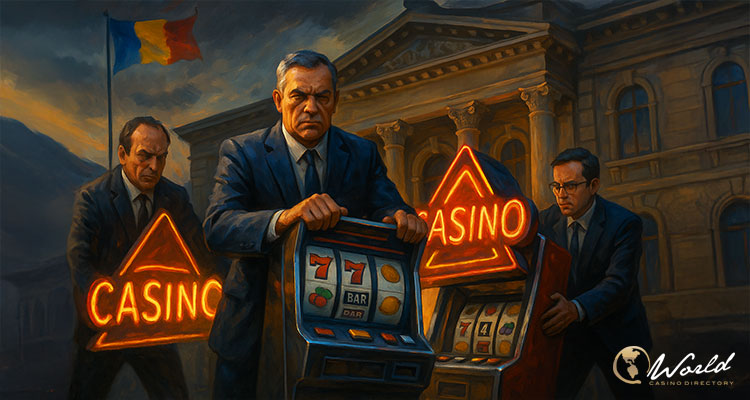Romania’s gambling industry faces another turning point as municipal authorities rally behind a draft bill that would transfer significant powers from the National Gambling Office (ONJN) to local governments. The proposal, presented by the Ministry of Development, would allow mayors and city councils to issue new “zoning authorisations,” effectively granting them the ability to decide where gambling halls and betting shops may operate—or to ban them entirely.
Local Leaders Push for Control
Until now, operators have required only a national licence, with municipalities limited to offering opinions during the licensing process. Under the new framework, local governments would gain the ability to block establishments on the grounds of public order, urban planning, or community health concerns. They would also be able to impose their own gambling levies aimed at offsetting social costs, with funds earmarked for local services and law enforcement.
Prime Minister Ilie Bolojan defended the measure in recent remarks, stating: “It is not enough to authorise gambling at the national level. City halls must be able to establish areas, whether the whole city, a single street, a neighbourhood, or a resort like Mamaia, where, based on a special tax, they can determine the intensity of such activities.” He added, “Mayors will decide if they need gambling and how many halls. Today, our cities are invaded by these gambling halls.”
Nelu Popa, mayor of Reșița, has been among the most vocal advocates for local authority over gambling. “Betting has become a scourge in Romania. A real drug that destroys destinies, especially those of young people,” he said. Popa pledged to use the proposed legislation to remove gambling halls from central locations and school areas.
Development Minister Cseke Attila has confirmed that the initiative would give municipalities both the right to restrict gambling to certain districts and the power to apply a special annual tax on operators. “The local authority can decide to place these activities on certain streets or areas, according to local interest. Also, the local authority can decide to establish a special annual tax that will be paid by the licensed gambling operator that carries out the activity in this way,” Attila said.
Support for the proposal has grown following revelations of ONJN’s regulatory shortcomings. A government audit covering 2019 to 2023 found nearly €1 billion in unpaid taxes and fees due to weak oversight and outdated systems. The scandal prompted the resignation of former ONJN president Gheorghe-Gabriel Gheorghe, who was replaced in April 2025 by Vlad-Cristian Soare.
A Sector Under Pressure
Calls for decentralisation come at a time of tightening fiscal policy. Romania’s government recently approved a package of tax increases intended to address a 7% GDP budget deficit. Online operators now pay 27% on gross gaming revenue, up from 21%, while retail operators face 23%. Slot machine operators also face higher fees, and players must pay a new 4% tax on winnings, applied at source. Critics warn that these changes may drive more activity into the black market.
At the same time, parliament has enacted restrictions on land-based gambling, including a law that prohibits venues in towns with fewer than 15,000 residents. Industry experts warn that constant shifts in legislation risk destabilising the sector, particularly as neighbouring countries present more predictable regulatory frameworks.
According to SBC Eurasia, Consultancy 4H Agency noted that the draft, officially titled “On measures to increase the financial capacity of administrative-territorial units, including amendments to related acts”, has passed public consultation and received a positive opinion from the Economic and Social Council on 29 August 2025. However, it remains at the Government stage and has not yet been submitted to Parliament for debate and vote.
As the debate unfolds, political allies within the Save Romania Union (USR) continue to press for ONJN’s dissolution, arguing that oversight powers should move to the Ministry of Finance and the National Tax Administration Agency. Meanwhile, temporary proposals such as capping player deposits at 10% of income are also being discussed, though ONJN has argued such measures are not technically feasible.



